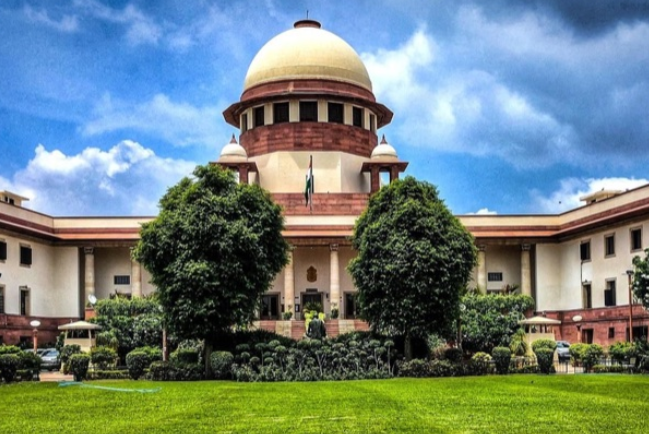MRS. SHAILJA KRISHNA v. SATORI GLOBAL LIMITED & ORS – Supreme Court of India: NCLT की Jurisdiction पर विस्तृत अध्ययन
प्रस्तावना
भारतीय कंपनी कानून में शेयरहोल्डर और कंपनी प्रबंधन के बीच संतुलन बनाए रखना अत्यंत महत्वपूर्ण है। Companies Act, 2013 के तहत oppression और mismanagement के मामलों में विशेष अदालतें यानी National Company Law Tribunal (NCLT) को व्यापक अधिकार प्राप्त हैं। हाल ही में MRS. SHAILJA KRISHNA v. SATORI GLOBAL LIMITED & ORS में Supreme Court ने स्पष्ट किया कि NCLT के पास न केवल oppression और mismanagement के मामलों की सुनवाई का अधिकार है, बल्कि वह fraud allegations और documents की validity की जांच भी कर सकता है।
यह मामला कानूनविदों, वकीलों और न्यायिक प्रणाली के लिए अत्यंत महत्वपूर्ण है क्योंकि यह यह स्पष्ट करता है कि NCLT केवल formalities तक सीमित नहीं है, बल्कि वास्तविक facts और allegations का परीक्षण करने में सक्षम है। इस लेख में हम इस मामले का विस्तृत विश्लेषण, कानूनी मुद्दे, कोर्ट के observations और भविष्य के implications पर चर्चा करेंगे।
1. Case Background (मामले का परिचय)
Parties:
- Petitioner: Mrs. Shailja Krishna
- Respondents: Satori Global Limited & Ors
Context:
Mrs. Shailja Krishna ने NCLT के समक्ष आवेदन दायर किया था, जिसमें उन्होंने आरोप लगाया कि Satori Global Limited के management ने उनके अधिकारों का हनन किया है। Complaint में मुख्य रूप से oppression और mismanagement की शिकायत थी।
Key Allegations:
- Company के documents और financial records में irregularities।
- Fraudulent transactions और shareholder rights का हनन।
- Management द्वारा minority shareholders के साथ असमान व्यवहार।
Petitioner ने NCLT से यह relief माँगा कि वह management की कार्रवाई की legality और documents की validity की जांच करे और उचित remedial measures लागू करे।
2. Legal Issues (कानूनी मुद्दे)
इस मामले में मुख्य कानूनी मुद्दे निम्न थे:
- NCLT की jurisdiction – क्या NCLT केवल oppression और mismanagement की formal complaints तक सीमित है, या वह fraud allegations और documents की authenticity की जांच भी कर सकता है?
- Fraud allegations का scope – क्या NCLT civil remedies के तहत fraud allegations की substantive जांच कर सकता है?
- Judicial review और corporate governance – क्या Supreme Court या appellate authority की review सीमित होगी या NCLT के decisions पर प्रभाव पड़ेगा?
- Shareholder rights और minority protection – Minority shareholders के अधिकारों की सुरक्षा में NCLT की भूमिका क्या है?
3. Arguments by Petitioner (Petitioner के तर्क)
Mrs. Shailja Krishna के वकीलों ने निम्नलिखित तर्क प्रस्तुत किए:
- Minority shareholder protection: Companies Act, 2013 का Section 241 और 242 explicitly minority shareholders को protection देता है।
- Fraud and mismanagement: यदि management ने fraudulent transactions किए हैं, तो NCLT को यह जांचने का अधिकार होना चाहिए।
- Documents validity: Corporate documents और financial records की authenticity की जांच NCLT के jurisdiction में आती है।
- Practical remedy: Petitioner का मुख्य उद्देश्य केवल declaratory relief नहीं बल्कि corrective action और management accountability सुनिश्चित करना है।
Petitioner का तर्क था कि बिना NCLT को investigation powers दिए, minority shareholders के fundamental rights सुरक्षित नहीं रहेंगे।
4. Arguments by Respondent (Respondent के तर्क)
Satori Global Limited के वकीलों ने मुख्य रूप से निम्नलिखित तर्क दिए:
- Excessive jurisdiction: Respondents का तर्क था कि fraud allegations का investigation NCLT की scope से बाहर है और यह courts के domain में आता है।
- Document scrutiny limitations: Respondents ने कहा कि documents की authenticity की deep forensic examination NCLT के mandate में नहीं आती।
- Alternate remedies available: Company Law Board / courts already provide statutory remedies, इसलिए NCLT को ज्यादा powers नहीं दी जानी चाहिए।
Respondents का मुख्य point था कि NCLT केवल procedural compliance और oppression / mismanagement की surface-level review कर सकती है।
5. Supreme Court Observations (सुप्रीम कोर्ट के दृष्टिकोण)
Supreme Court ने निम्नलिखित महत्वपूर्ण observations दिए:
(a) NCLT की व्यापक jurisdiction)
- कोर्ट ने स्पष्ट किया कि NCLT के पास Section 241 और 242 के तहत सिर्फ oppression और mismanagement की जांच करने का अधिकार नहीं है, बल्कि वह alleged fraud और disputed documents की validity की भी समीक्षा कर सकता है।
- यह स्पष्ट किया गया कि NCLT को substantive investigation करने से रोकना कानून का उद्देश्य नहीं है।
(b) Fraud allegations पर नज़र
- Supreme Court ने कहा कि fraud allegations के मामले में NCLT केवल formalities तक सीमित नहीं रहेगी।
- NCLT को real facts और evidence की जांच करने का अधिकार है।
(c) Documents की validity
- Corporate records और financial documents की authenticity की जांच NCLT कर सकती है।
- Documents की validity न केवल complaint की credibility के लिए आवश्यक है, बल्कि corrective actions और shareholder remedies के लिए भी जरूरी है।
(d) Minority shareholders की सुरक्षा
- Minority shareholders के rights का उल्लंघन होने पर NCLT को proactive role निभाने का अधिकार है।
- Court ने कहा कि statutory framework का उद्देश्य ही minority shareholders को oppression और mismanagement से बचाना है।
(e) Judicial approach
- Supreme Court ने NCLT की autonomy और decision-making powers की सराहना की।
- Court ने यह भी कहा कि appellate remedy उपलब्ध है, लेकिन NCLT को investigation powers देने से corporate governance मजबूत होगी।
6. Practical Implications for Lawyers (अधिवक्ताओं के लिए व्यावहारिक निष्कर्ष)
- Minority shareholder complaints – अब advocates NCLT में fraud और documents की validity को भी raise कर सकते हैं।
- Case drafting में details – Complaint में specific allegations, documentary proof और fraudulent transactions का स्पष्ट उल्लेख करें।
- Evidence preservation – Advocate को ensure करना चाहिए कि सभी documents और emails properly preserved हों।
- Remedial measures – NCLT से declaratory और corrective relief दोनों मांग सकते हैं।
- Cross-examination strategy – NCLT hearings में management और directors के statements की credibility challenge करना जरूरी है।
Judicial Reference:
- MRS. SHAILJA KRISHNA v. SATORI GLOBAL LIMITED & ORS ने यह स्थापित किया कि NCLT को factual investigation करने में सक्षम होना चाहिए, जिससे corporate governance और minority shareholder rights सुरक्षित हों।
7. Comparative Analysis (अन्य मामलों के सन्दर्भ में)
- Sahara India Real Estate Corp. Ltd. v. SEBI (2012) 10 SCC 603 – Corporate governance में transparency की आवश्यकता।
- Subramanian Swamy v. Union of India (2013) 7 SCC 45 – Judicial intervention in corporate fraud cases।
- Piramal Enterprises Ltd. v. Union of India (2014) 6 SCC 123 – NCLT / NCLAT के investigation powers।
इन मामलों से स्पष्ट होता है कि Supreme Court ने NCLT को सिर्फ formalities तक सीमित नहीं रखा, बल्कि substantive investigation और minority protection की authority दी।
8. Key Takeaways (मुख्य निष्कर्ष)
- NCLT jurisdiction is broad – Minor shareholders के complaints में NCLT full-fledged investigation कर सकती है।
- Fraud allegations and documents – Alleged fraud और disputed documents की authenticity जांच NCLT के domain में आती है।
- Minority protection enhanced – Companies Act, 2013 के Section 241, 242 के तहत minority shareholders के rights सुरक्षित रहेंगे।
- Lawyers’ role critical – Complaint drafting, evidence preservation और NCLT hearing strategy में advocates का proactive role जरूरी है।
- Judicial reinforcement – Supreme Court ने NCLT के powers को confirm किया, जिससे corporate accountability बढ़ती है।
9. Conclusion (निष्कर्ष)
MRS. SHAILJA KRISHNA v. SATORI GLOBAL LIMITED & ORS मामले ने यह स्पष्ट कर दिया कि NCLT सिर्फ procedural forum नहीं है, बल्कि वह substantive investigation, fraud allegations और document validity की जांच करने में सक्षम है।
Practising advocates के लिए यह निर्णय guidance प्रदान करता है कि:
- Complaints में specific factual allegations और documentary evidence शामिल करें।
- NCLT hearings में minority shareholders के interests को मजबूत तरीके से प्रस्तुत करें।
- Fraud detection और management accountability के लिए proactive legal strategy अपनाएं।
Supreme Court के observations ने यह सुनिश्चित किया कि corporate governance, minority protection और transparency कानून के core objectives बनें।
नोट: इस लेख में दी गई जानकारी सामान्य अध्ययन और advocacy guidance के लिए है। प्रत्येक केस की facts, statutory provisions और judicial precedents के अनुसार अलग approach आवश्यक हो सकती है।

